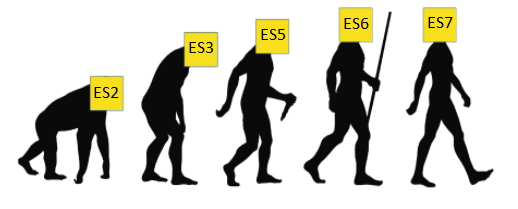Hello, Habr! I present to your attention the translation of the article edited byxfides
Original author: Marja Hölttä
Translation of the first part.

Let's practice reading the spec some more. If you haven't seen the previous article, it's time to go watch it. In the first part, we got acquainted with the simple Object.prototype.hasOwnProperty method . Also, we looked at the list of abstract operations that are called when this method is executed. We also learned about the specific abbreviations "?" and "!" related to error handling. Finally, we got information about language types, specification types, internal slots and internal methods.
Ready for Part 2?
Warning! This episode contains a copy of the algorithms from the February 2020 ECMAScript specification. Naturally, over time, the information will become outdated.
, : , , , , , . :
const o1 = { foo: 99 };
const o2 = {};
Object.setPrototypeOf(o2, o1);
o2.foo;
// → 99?
, . — .
[[GetOwnProperty]] [[Get]]. , — [[Get]]. , [[Get]], , , , .
[[Get]] — . ( ) . [[Get]], . .
[[Get]] ( P, Receiver ). OrdinaryGet. , [[Get]] «» «» ECMAScript Receiver, :
1. Return ? OrdinaryGet(O, P, Receiver)., Receiver — , this , -.
1. Assert: IsPropertyKey(P) is true.
2. Let desc be ? O.[[GetOwnProperty]](P).
3. If desc is undefined, then
a. Let parent be ? O.[[GetPrototypeOf]]().
b. If parent is null, return undefined.
c. Return ? parent.[[Get]](P, Receiver).
4. If IsDataDescriptor(desc) is true, return desc.[[Value]].
5. Assert: IsAccessorDescriptor(desc) is true.
6. Let getter be desc.[[Get]].
7. If getter is undefined, return undefined.
8. Return ? Call(getter, Receiver).: , [[Get]] , OrdinaryGet. , [[Get]] , OrdinaryGet. , , null.
, , o2.foo. OrdinaryGet «» «2», «» — «foo». , O.[[GetOwnProperty]](«foo») undefined, if 3, «o2» «foo».
3.a, «parent» «o2» — «o1». «parent» null, if 3.b.
3. [[Get]] «foo» . «o1» — , [[Get]] OrdinaryGet . , «» «1», «» «foo».
2 O.[[GetOwnProperty]](«foo») , desc.
— . [[Value]]. [[Get]] / [[Set]]. , «foo» — .
, desc 2, if 3.
4. , 99, [[Value]] 4. .
Receiver ?
Receiver - 8. this, -.
OrdinaryGet Receiver ( 3.c). , Receiver.
, [[Get]], GetValue, Reference. Reference — , , strict. o2.foo «o2», — «foo», strict — false.
: Reference Record?
Reference Record, . , . , Reference Record .
GetValue.
, GetValue ( V ) :
1. ReturnIfAbrupt(V).
2. If Type(V) is not Reference, return V.
3. Let base be GetBase(V).
4. If IsUnresolvableReference(V) is true, throw a ReferenceError exception.
5. If IsPropertyReference(V) is true, then
.If HasPrimitiveBase(V) is true, then
i.Assert: In this case, base will never be undefined or null.
ii.Set base to ! ToObject(base).
b.Return ? base.[[Get]](GetReferencedName(V), GetThisValue(V)).
6. Else,
a.Assert: base is an Environment Record.
b.Return ? base.GetBindingValue(GetReferencedName(V), IsStrictReference(V))Reference o2.foo, property reference.
, if 5. 5.a, «2» (, , , BigInt, Boolean, Undefined, Null).
[[Get]] 5.b. Receiver, — , GetThisValue(V). GetThisValue( V ) Reference:
1. Assert: IsPropertyReference(V) is true.
2. If IsSuperReference(V) is true, then
a.Return the value of the thisValue component of the reference V.
3. Return GetBase(V).o2.foo, if 2, o2.foo Super Reference( super.foo), , 3 Reference, «o2».
, , Receiver Reference, , , . , , , , -, Receiver this.
, this , , , .
!
const o1 = { x: 10, get foo() { return this.x; } };
const o2 = { x: 50 };
Object.setPrototypeOf(o2, o1);
o2.foo;
// → 50- «foo», . «this.x.».
o2.foo — ?
, , , this , , , . , this «2», «1». , , : o2.x o1.x. o2.x.
, ! , .
— — [[Get]]?
, [[Get]] , o2.foo? , - . !
, [[Get]] GetValue, References. GetValue?
MemberExpression
- , .
, . , (Yield, Await ..) .
, MemberExpression :
MemberExpression :
PrimaryExpression
MemberExpression [ Expression ]
MemberExpression . IdentifierName
MemberExpression TemplateLiteral
SuperProperty
MetaProperty
new MemberExpression Arguments7 MemberExpression.
MemberExpression PrimaryExpression. MemberExpression MemberExpression Expression, : MemberExpression[Expression], o2[’foo’]. MemberExpression.IdentifierName, o2.foo — .
Runtime Semantics: Evaluation for MemberExpression: MemberExpression. IdentifierName :
1. Let baseReference be the result of evaluating MemberExpression.
2. Let baseValue be ? GetValue(baseReference).
3. If the code matched by this MemberExpression is strict mode code, let strict be true; else let strict be false.
4. Return ? EvaluatePropertyAccessWithIdentifierKey(baseValue, IdentifierName, strict).EvaluatePropertyAccessWithIdentifierKey, . EvaluatePropertyAccessWithIdentifierKey(baseValue, identifierName, strict) baseValue, identifierName, strict :
1. Assert: identifierName is an IdentifierName
2. Let bv be ? RequireObjectCoercible(baseValue).
3. Let propertyNameString be StringValue of identifierName.
4. Return a value of type Reference whose base value component is bv, whose referenced name component is propertyNameString, and whose strict reference flag is strict., EvaluatePropertyAccessWithIdentifierKey Reference, baseValue base, identifierName , strict .
, Reference GetValue. , , Reference .
MemberExpression
:
console.log(o2.foo);, ArgumentList: AssignmentExpression. , . GetValue :
Runtime Semantics: ArgumentListEvaluation
1. Let ref be the result of evaluating AssignmentExpression.
2. Let arg be ? GetValue(ref).
3. Return a List whose sole item is arg.o2.foo AssignmentExpression, , . , , , , .
Step 1 evaluates the AssignmentExpression algorithm , which is o2.foo . The ref will contain the result of the calculation.
In step 2, we call GetValue from it. Thus, we know that the internal method of the [[Get]] object will be called and the prototype chaining will take place.
Summary
In this part, we looked at how the specification defines the features of the language; in our case, a prototype search through all the different layers: syntactic constructs that run algorithms and the steps that define them.